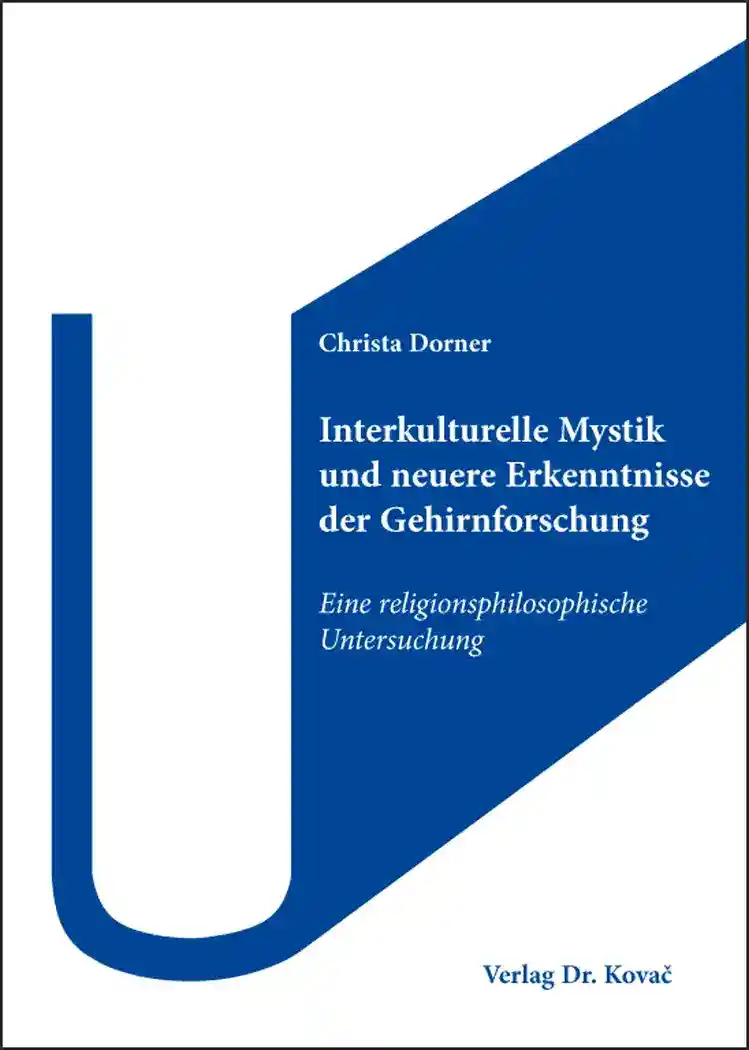Christa DornerInterkulturelle Mystik und neuere Erkenntnisse der Gehirnforschung
Eine religionsphilosophische Untersuchung
Schriften zur Religionswissenschaft, volume 5
Hamburg 2016, 212 pages
ISBN 978-3-8300-9027-4 (print) |ISBN 978-3-339-09027-0 (eBook)
About this book deutschenglish
People of different origins use their power of imagination to manage their thinking, feeling and acting in various ways by using different images as powerful tools. They deduce norms of behaviour, rules of communication and interpretations of life from their inner images. Thus, mythic and religious images form specific groups and affiliations. For quite some time now, brain researchers have investigated the phenomenons of mysticism and religion. Using modern empirical methods, they conduct research on the brain processes of meditating and praying people, of mystics in ecstatic experiences. It has been shown that mystic experiences are not at all connected with pathological changes of the human brain. Rather, many mystics undergo a deep experience of overall unity and arrange their lives in a realistic way. The aim of the present thesis is to make mystic experiences more accessible to a rational discourse than it has been the case in the past. Part one presents the philosophic doctrines of some big world cultures in condensed form, thus pointing out different life orientations of India, China, Japan and the Christian, Islamic and Jewish mysticism. Part two deals with the question which contribution brain research can present to the understanding of mysticism and religion. For this purpose, some of the findings of empirical studies of well-known brain researchers are discussed. Part three concerns with sociological studies by A. Greeley as well as mystic perceptions of the natural scientist and philosopher R. Panikkar. There also is a discussion of findings from process philosophy according to A. N. Whitehead. The concluding summary tries to create a possible connection between mysticism and the scientific conception of the world. It can be pointed out, that mysticism and science don`t exclude each other (L. Wittgenstein).
Keywords
GehirnforschungGeist und GehirnInterkulturelle MystikKraft der inneren BilderMystische ErfahrungenNeurotheologieProzesstheologieReligionsphilosophieIhr Werk im Verlag Dr. Kovač

Möchten Sie Ihre wissenschaftliche Arbeit publizieren? Erfahren Sie mehr über unsere günstigen Konditionen und unseren Service für Autorinnen und Autoren.
